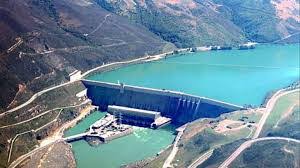ISLAMABAD, : Construction of Baluchistan’s biggest hydropower project, the Naulong Dam, has restarted, Gwadar Pro reported on Monday.
The dam will irrigate 47,000 acres of barren land and will provide 4.4MW of electricity.
Issues related to the Naulong Dam have been sorted out and under the direction of the Standing Committee on Water Resources, the Federal Board of Revenue (FBR) released Rs 1,916 million for the construction of the Naulong Dam to the Water and Power Development Authority (WAPDA).
The 186-feet high dam has a total storage capacity of 242,452 AFd. Live storage is 200,000 AF. While the annual benefits to agriculture will be Rs 2.017 billion, power Rs 0.413 billion, and fisheries Rs 0.018 billion.
The Naulong Dam will create 23,500 agricultural jobs. It will help protect the catchment areas from the deluge. The dam will irrigate areas near Jhal Magsi, Gandawa, and khuzdar, which will boost economic activities and strengthen farmer fraternity in the province.
The government expedited the construction of the Naulong dam. WAPDA already completed its feasibility and detailed design.
Since the water table in Baluchistan is quite low, fetching water for irrigation is a major challenge in itself. So, in order to cope with the water requirements in the province, the provincial and federal governments have sponsored the construction of many dams in Baluchistan, some of which are operational while others are yet to be completed.
In addition to the aforementioned operational dams in Baluchistan, provincial authorities in collaboration with the federal government have undertaken the ‘100 Dam Baluchistan’ Initiative.
The government worked out a comprehensive program for managing the incurring floods through small dams. The completion of these projects would help the irrigation system besides tackling the water scarcity situation in the province.
It is one of the water conservation efforts by the government to solve the problem of water shortage in Baluchistan.

















